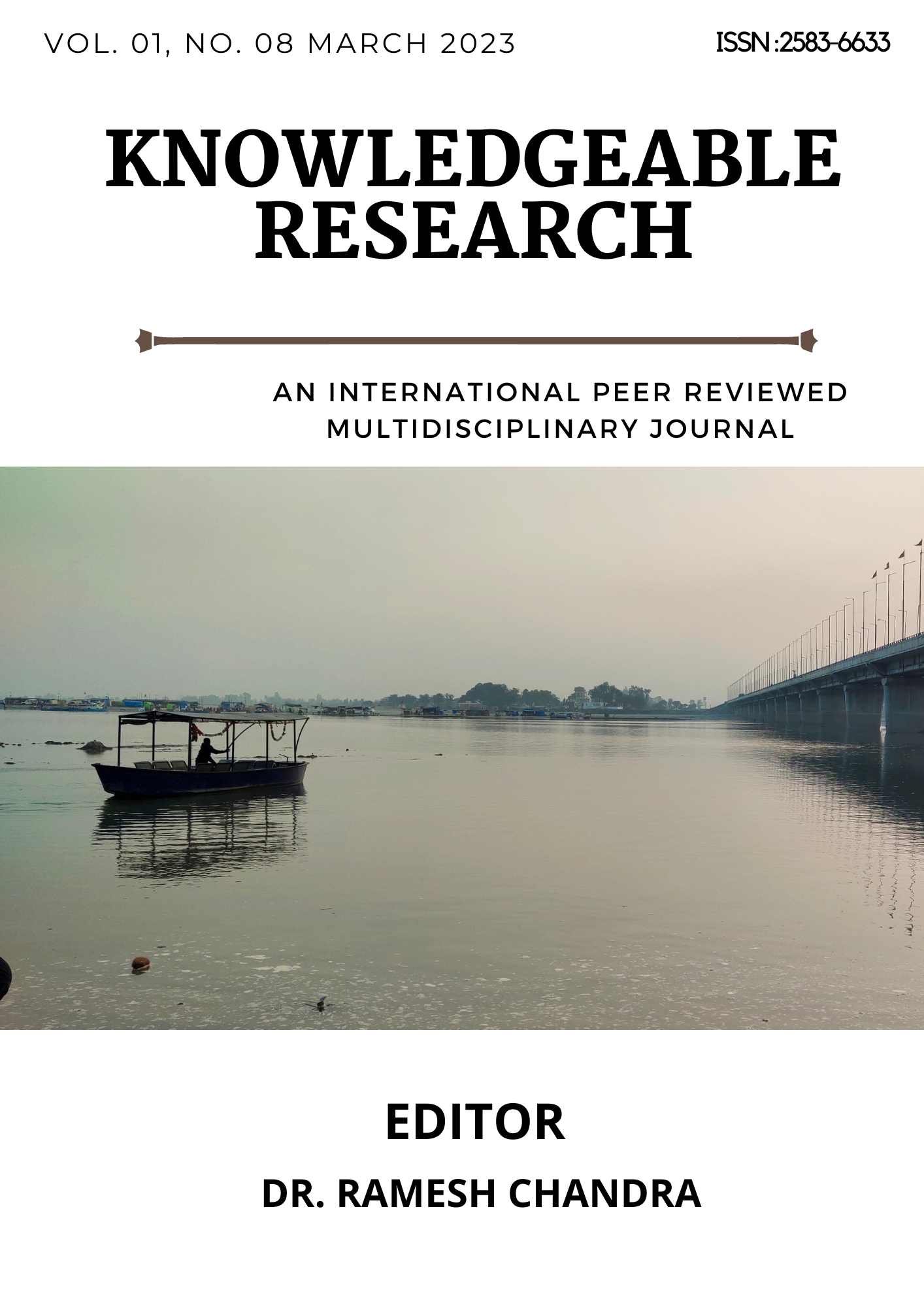Modern Sanskrit poetry and Other than Sanskrit words
Main Article Content
Abstract
There has been trade in India since the Rig Vedic period. It is mentioned in the situation that the watery horses, powerful chariots and woolen clothes of the Indus region were famous all over the world. The Atharvaveda has only one Sukta in the name of Vanijya Sukta - Descriptions of sea visits are also found in Jataka stories and Buddhist stories. Business reasons are used to visit the traders of one country to another country. He (traders) had to teach the dialect of that country for their thoughts and purchasing and purchasing goods. The Harappans were identified as very good marine sailors. The Dakyard found in Lothal, Gujarat is very concrete evidence of the maritime trade being done during that time. The people of the Harappan civilization established contacts with the countries of Oman, Bahrain, and West Asia. Since the Harappan period, cloth has been continuously one of the major items of Indian trade. According to Hagel- “India is known as the land of ambitions in history. Their (traders) this reconciliation result was that each other's languages got so much that they started being used in colloquial just like Hindi-Sanskrit and gradually made their grip to literary disciplines.
Article Details

This work is licensed under a Creative Commons Attribution-NonCommercial-NoDerivatives 4.0 International License.
References
Rakshat Gadgam, Dr. Kamala Pandey, Verse No. 11 is the publication of ‘Raksht Gangaam’- Srimata Publications, B/4/60, Hanumanghat, Varanasi, Prathan edition 1999 AD.
Atmanaatmanam, Prof. Radhavallabh Tripathi, Sanskrit Bharati New Delhi, Edition 2011 AD, p. `1
Mahakavi Kantaka:, Prof. Radhavallabh Tripathi, Sanskrit Parishad Sagar M.P.,Edition 1971 AD, p. 26
Sandhanam, Prof. Radha Vallabh Tripathi, www.sanskrit.nic.in
Modern Sanskrit Kavya Parikrama, Dr. Manjulata Sharma, National Sanskrit Institute New Delhi, Edition 2011 AD. Page number 224
Bhati te Bharatam (poetry), Dr. Harshdevmadhav, Chanda Palli Prakashan, Orissa, First Edition 2007 AD, p. 12
Vishashatabdisanskrit Kavyamritam, (Part One) Principal Editions Shrikrishna Semwal, Compiler Prof. Abhiraj Rajendra Mishra, Delhi Sanskrit Academy Publication, edition 2000 AD, p.No. 545
Samudre Buddha's Netre, Dr. Rishiraj Jani, Srivani Academy Ahmedabad Gujarat, First Edition 2014 AD, Page No.
